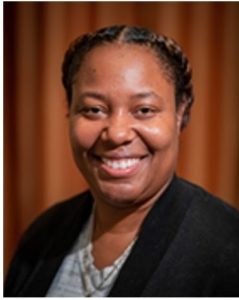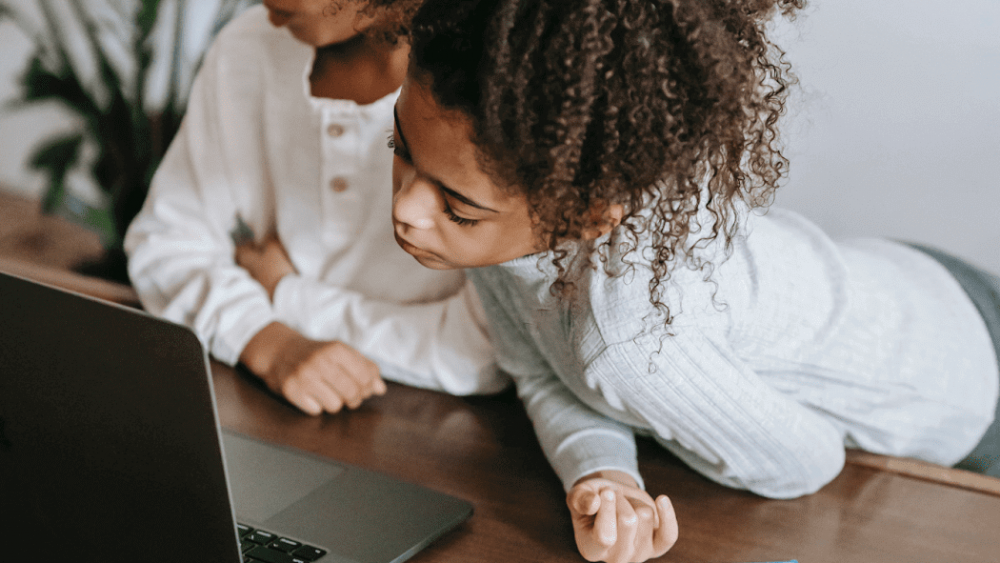Photo by Marta Wave from Pexels
For many schools, remote learning and hybrid learning have been the new normal during the COVID-19 pandemic. School librarians had the necessary tools and skills to make this virtual adjustment. In this blog post, I interviewed school media specialist Eboni Henry about teaching virtually, digital tools, and student engagement.
Jamia: As a school librarian, what adjustments did you have to make to teach virtually?
Eboni: Not much since we have online resources such as SOAR and Overdrive to help me read books to students, and they give them the ability to check out books virtually instead of having books in their hands. Because my students actually enjoy reading from an actual book, I created more Donor Choose projects to give away hundreds of books to students during this pandemic. I also had to purchase a document camera to read books that I had in my collection that may not have been available online.
Jamia: What digital tools did you discover during this time?
Eboni: I was familiar with SOAR, Bookflix, and Storybook databases, and I would tell students to use them at the beginning of the year but never really went back to use myself. So I have discovered the love of SOAR, which is an online platform for my students to check out up to three books at a time and read. Since then, my circulation has gone up tremendously.
Jamia: How were you able to keep students engaged during your online classes? We would love to hear some tips or tricks that you used.
Eboni: For my PreK students, I didn’t read many books but had them dancing and drawing more with music playing in the background. For K–2nd graders, I showed books read by other people from YouTube because, for them, it was like watching a movie. I asked my standard questions, such as, “What were your thoughts about the book? What was your favorite part of the book, and why? Did you learn something from the book?” For 3rd–5th graders, I allowed them to speak freely for about 10–15 minutes before reading books or showing them how to navigate online resources. We talked about social injustice, racism, diversity, and equality. For 5th graders, we also virtually toured middle schools and their websites.
 Eboni M. Henry brings 20 years of operational experience in academic, special, public, and school libraries in urban and rural settings from Tuskegee, AL, to Baton Rouge, LA, to Atlanta, GA, to DC. Currently, she is a School Media Specialist for DC Public Schools in Washington, D.C. Her previous experience includes Branch Manager, Senior Children’s Specialist with expertise in professional development, Senior Librarian/Team Lead, and Children’s Librarian. Eboni has 14 years of experience in library leadership. She has completed continuous formal leadership training through the ALA, PLA, ALSC, and AASL. Eboni trained other library professionals by presenting on management and leadership at local and national conferences and webinars. She is on the ALA Executive Board, ALA Council, AASL School Library Event Promotion Committee, and ALA-APA Standing Committee on the Salaries and Status of Library Workers and is active with BCALA and the District of Columbia Library Association.
Eboni M. Henry brings 20 years of operational experience in academic, special, public, and school libraries in urban and rural settings from Tuskegee, AL, to Baton Rouge, LA, to Atlanta, GA, to DC. Currently, she is a School Media Specialist for DC Public Schools in Washington, D.C. Her previous experience includes Branch Manager, Senior Children’s Specialist with expertise in professional development, Senior Librarian/Team Lead, and Children’s Librarian. Eboni has 14 years of experience in library leadership. She has completed continuous formal leadership training through the ALA, PLA, ALSC, and AASL. Eboni trained other library professionals by presenting on management and leadership at local and national conferences and webinars. She is on the ALA Executive Board, ALA Council, AASL School Library Event Promotion Committee, and ALA-APA Standing Committee on the Salaries and Status of Library Workers and is active with BCALA and the District of Columbia Library Association.
See also:
- Library Instruction & Reflective Practice: Interview with Student Success Librarian Amanda M. Leftwich
- Unpacking Diversity Resources: An Interview about Diversity Audits and Best Practices
- Becoming the K–12 Embedded Librarian: Encouraging Librarians to Collaborate to Foster Relationships within Their Schools
- 6 Tips to Build and Manage a Digital School Library


